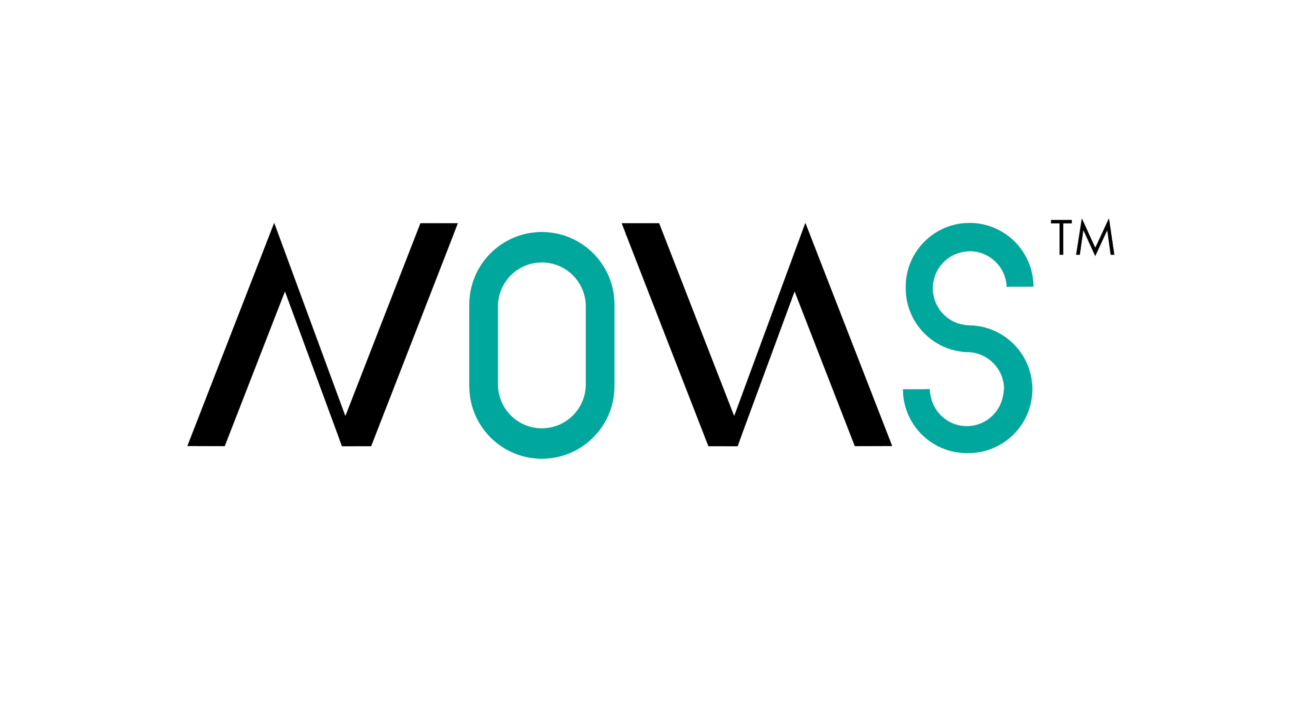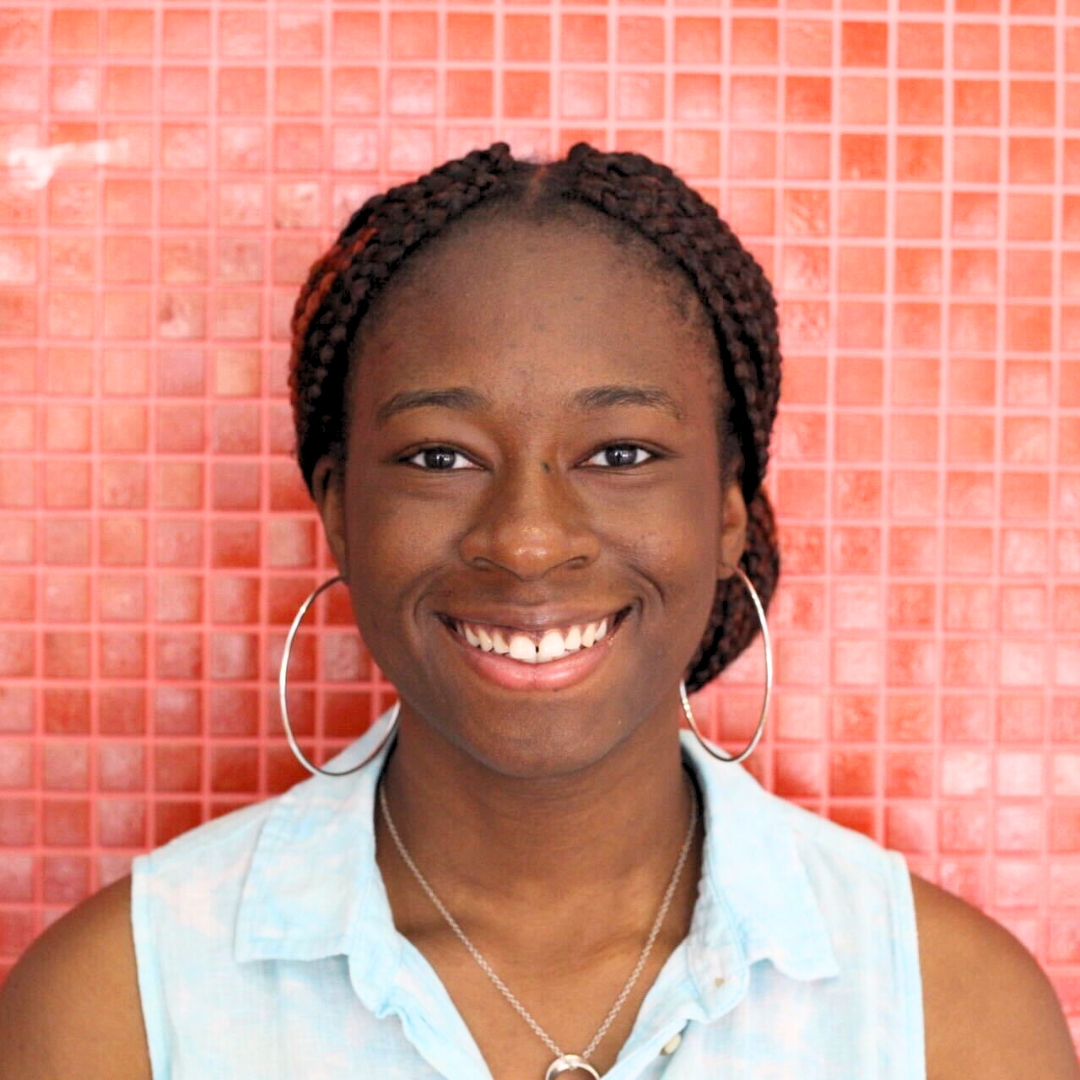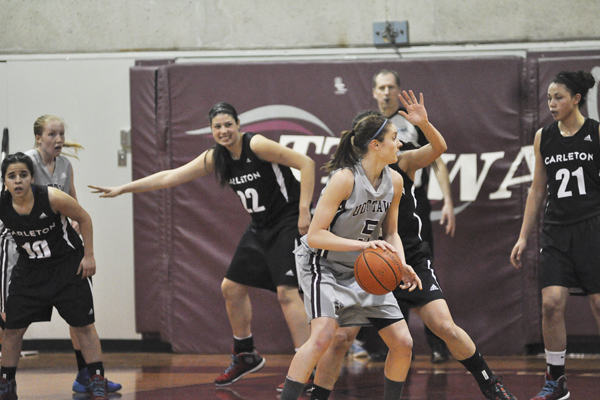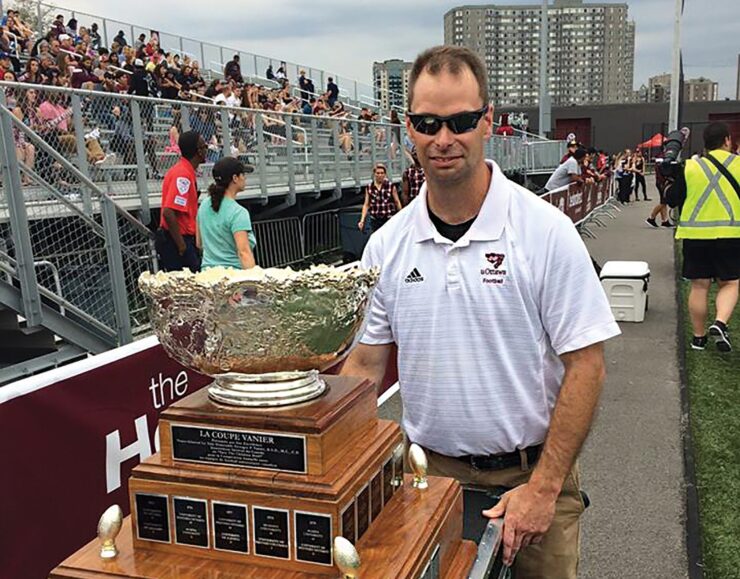“I’VE MET THE MOST INCREDIBLE PEOPLE, SOME WHOM I STILL WORK WITH TODAY. I THINK THE EXPERIENCE OF RUNNING A BUSINESS AND STUDYING HAS BEEN SO REWARDING IN THAT REGARD.”
Juggling a full time business and school seems like an impossible task. The Fulcrum sat down with successful entrepreneur and CEO Drayton Mulindabigwi to hear how he accomplished this feat. Drayton started 20today20tomorrow in 2021 with a group of other young innovators to provide and promote innovative, inspiring environments for youth to learn and flourish. However, in 2023, 20today20tomorrow was expanded into The Novas Group to accommodate the broader goals, target audiences and outreach capacity the CEO wanted the business to embody.

Image: The Novas Group/Provided
The Fulcrum (TF):
Could you tell me your name, how old you are, your year, and your program?
Drayton Mulindabigwi (DM):
My name is Drayton Mulindabigwi. I am 23 years old, and I’m in my fifth year in health sciences at the University of Ottawa.
TF:
Did your current program of study impact the business you run now in terms of business management, techniques or philosophies?
DM:
Being in health sciences, the direct path is not to move to business. I enjoy my program. When I first got into health sciences, it was because I wanted to get to med school. Being in my program set me up to thrive where I am now. The program and my desire to get into med school forced me to learn time management skills, prioritizing and other things.
In that aspect, it has influenced the business side of me. I have a deep interest in health and technology. 20today20tomorrow was involved in creating mental health awareness and the companies I work with and I work in have elements of that. I do see myself eventually getting into [more direct] ventures down the path of health and technology.
TF:
You mentioned you planned to go to medical school, is that still the plan?
DM:
No, unfortunately, not. The main reason being that I never envisioned myself going into business. It just kind of happened naturally. The first year, when I started 20today20tomorrow, I got a taste of what the business world was like. I discovered the opportunities and the freedoms business gave you.
All of a sudden, I had so much freedom in terms of possibilities. I love this. I love the feeling of being able to jump in different fields and I was always someone who wanted to learn about a bunch of different things. To be a doctor, you really have to hold on to your passion and I felt like that was just not me anymore. I love learning and academia so I eventually want to go back to school for a masters degree though.
TF:
What are your plans once you graduate? Are you working on any new projects?
DM:
Once I graduate, which is really soon, I plan to do business full time. I am going to keep working on my ventures, growing, and then launching more as the years progress. As far as projects go, I do have some things I am working on but they are still very low key at the moment.
TF:
You started your first business in first year. That means all throughout university you’ve been juggling running a business and going to school. How did you do it?
DM:
I think about it sometimes, how did I manage everything? When I first started, first year, it was during COVID, so everything was online. Honestly, I think that helped me the most, because I had so much time on my hands to do schoolwork. During that period, I really had time to organize myself and build good habits. I figured out the best times of the day to be most productive and found ways to build and manage schedules.
All these things eventually got me to a level where I could manage school and work at the same time. When things came back in person, it was a bit different. I don’t think we even understood that things like commuting took so much time out of the day. Thankfully, because I had built up those skills, I was able to plan things accordingly. It wasn’t a crazy change, but it was still a change that I had to adapt to.
TF:
Well, business is about taking advantage of your environment. Along those lines, what is the most challenging thing you ever faced in juggling running a business and attending school?
DM:
I think the most challenging part was managing priorities. It felt almost cyclical. Our exams are planned at the end of the semesters which are usually also peak quarters for a lot of businesses. You end up having to study for exams while thinking about how to build this year’s returns. All these problems in the company always seemed to happen at that time too.
Sometimes, there were also issues in my personal life, and I’m like, ‘wow, okay.’ Sometimes it was really overwhelming, and I had to just find a way to learn how to deal with it all at once which was totally new to me. That was probably the hardest.
TF:
I’m curious. How did you overcome that?
DM:
I think it came down to my long term planning of things. When I first started university, I knew that I wanted to get into a lot of different things. In my first year, during COVID, I had nothing to do, so I went to all those orientations and events. I spoke to all these people and asked them how they succeeded.
A lot of them said to use the first two years to really get your grades up because once you have that high GPA it takes a lot to bring it down. So that’s what I did. Those first two years of school, I really focused on school. It also helped that my business was relatively slow at the beginning, so I had that time as well. By the time business was kind of crazy, it was okay to put school second, because I knew that I had that buffer. It also helped that school came easier to me.
TF:
What is the most rewarding thing that you have experienced or you have achieved with running a business and going to school?
DM:
People, I would say it is people. I’ve met the most incredible people, some whom I still work with today. I think the experience of running a business and studying has been so rewarding in that regard. You meet people that are like minded and passionate through the work you do.
With university, something that I think not many people take advantage of is the fact that you have basically four years where all these people from all around the world are all in one place. Never again are you going to be in this situation. So that, mixed in with having a business allowed me to connect so well with so many different people from so many different perspectives. It opened up my perspective of the world, and it enhanced my business, and also enhanced my school experience. So I think that’s definitely the best part.
TF:
Would you say that you being a student ever affected how your clients perceived you?
DM:
There are two sides to that: there’s the down side and a good side. The down side is obviously that people think you’re not an expert. Whatever you do, you’re just a kid and you’re still learning. You have to try to prove yourself and I think it’s just a part of the process. Everyone has to become a student at some point, and you have to do things that are super uncomfortable. Get out of your comfort zone.
The way the business world is built is that it rewards those who work hard. Trying to get people to respect your ideas and respect what you bring to the table, takes time and effort. However, once you put in that time and effort, you end up doing so many things that change your perspective of so many other things. So that’s the down side, but that, I think, is also on the good side.
Something that people don’t necessarily take advantage of, is the fact that as a student, you have access to so many more places than someone who’s older. As a student, you basically have a green card to every single room. If you want to talk to someone, because you’re a student, they’re going to want to listen to you. Especially because you’re a student and they kind of undermine you, they’re going to want to tell you so many things. They’re going to want to impart their wisdom onto you.
If you’re able to take advantage of that and understand that there’s still so much for you to learn, you’ll end up making up for the fact that you are young and experienced. There have been so many instances where I talk to someone, and because I was a student and they saw I was passionate, they decided to connect me with someone that could help me or could give me advice. You don’t get that if you are 30 and just starting your business. By then,you’ll be expected to figure it out yourself and pave your own way.
TF:
Now that you have had all these experiences, if given the chance would you do anything differently?
DM:
Yes. I would probably take an accounting class. Mainly because in the corporate world, it’s all about accounting and then some. I feel like accounting is the basis of everything that happens in business. You hear a lot of people say that it’s mostly about cash flow and that’s the only thing you need to know but in my experience, it comes down to the numbers. So I would definitely have taken an accounting class in my first year.
TF:
How has your team grown with you? Are there any people from 20today20tomorrow that came to The Novas Group?
DM:
At this point, I run multiple teams. With 20today20tomorrow, it became a part of Novas. 20today20tomorrow was like a smaller version of The Novas Group. So with the growth, most of the people just moved to Novas.
Most of us are students and we all started in the first years of university. We’re all these very excited, energetic kids trying to change the world. So that, I feel, has built our culture. We always have this youthful energy to everything we do and that has allowed us to grow.
Those first few years look very different from what things look like now. There’s been a lot of things that we have had to do to better our service and presentation. So the operations side of things looks very different.
What hasn’t changed is our spirit and our culture. I think that’s the one thing that you don’t want to change. You would always want this culture, especially in innovative spaces. We have seen each other grow in their lives: graduating and evolving as people. That’s really cool.
TF:
What drove you to rebrand and expand into The Novas Group. You could have kept the name, what made you change it?
DM:
It was a time to think bigger in terms of division. I felt like the name that we had initially was good but also limiting. There were a lot of things that had to do with the people we were serving and the way that our messaging was presented, that we didn’t necessarily want to stay in the bigger vision.
We needed a new face. The word Novas just came to me one morning, and I wrote it down. I write down everything by the way. We had a bunch of brainstorm sessions, trying to play around with different things. Eventually we settled on the name we have now — The Novas Group.
TF:
A lot of young people believe that if you have a successful business, you don’t really need to go to school. What’s your take on that?
DM:
I think it’s very interesting. It’s just like the perception that people have of school. It’s more like I go to school because I want to be successful. For me, I go to school because I want to learn. One thing that has kind of helped me to push through the school, is that I wanted to learn about all these different things. I’ve taken so many different electives that have opened up my perspectives in so many ways.
Another thing, as I mentioned earlier is, the people and the connections you can make. That is super key and something that not a lot of people know. I was recently talking to a dean at the University of Ottawa. He was talking about how, even though school is great and there’s a lot you can learn from school, that’s not really the purpose of the school system.
Nowadays, a lot of the things you learn at school, you can learn outside through online courses that are really affordable. The value added in attending university and similar institutions is not really the knowledge, it’s the people and the connections you’re able to make in that short amount of time.
So when people that aren’t really involved in their schools, and just come to study, they’re kind of missing the bigger picture. Especially when you have the opportunity to go to these bigger universities. So I’ve definitely tried my best to maximize my experience when it comes to building networks.
I get to connect to as many people as are in the university. I talk to random people in my classes, talk to teachers and deans and all these people not just to get something, but to learn about what they do and how things work with them.
TF:
What would you say to any aspiring entrepreneurs?
DM:
Corny, but just do it. And also, dream big. I think that’s something that has helped me so much. There’s so many different things that can go wrong, and there are always things that do go wrong.
If your dream is not large enough for you to look past all these other different things, it becomes really hard when you try to overcome the challenges and cope with the fact that there’s so many different things that you have to think about all the time. So just do it and dream big is what I will say.







